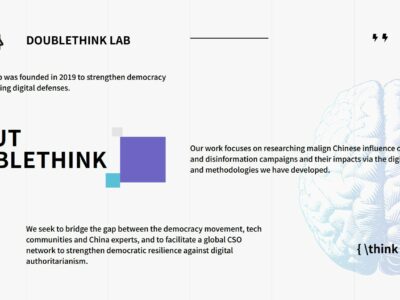
Image from Wikimedia Commons. Public domain.
Oh, the outrage this morning on the Global Voices WhatsApp channel when Owen Guo, one of our contributors from China, interrupted the stream of photos of people’s breakfasts, cat memes, wry quips, and globalist gossip to report that entire paragraphs of his article How One Woman Reacted to China’s Smog had appeared, uncredited, in an article by Guardian writer Mark Tran.
One person whom we suspect had just crawled home from a bar (even his typing was slurred) asked how Owen had managed to hack into a Guardian writer’s computer. But for the sober among us the ugly truth has already dawned: this was plagiarism, plain and simple.
This isn’t the first time a journalist has swiped entire swaths of content from Global Voices without attribution. We know that for many journalists we’re an important source of story ideas and local intel. Thing is, we’re cool with people taking our content, and have a very liberal Attribution Policy which allows anyone to “share, republish, translate or remix” our stories, provided they credit us accordingly. We’ve chosen to do it this way because we want the stories we tell to be read and shared by as many people as possible. Which is why we’re especially delighted when our work is quoted, referenced, linked or republished by big media outlets.
We’re aware that nothing is new under the sun, and that journalists have bills to pay like the rest of us. While the occasional uncanny resemblance between our articles’ wording and structure and those that appear in mainstream media is already pushing the limit, we often leave those be. But lifting entire paragraphs from our posts and plopping them into your own article and calling it your own work: indescribably uncool.
To his credit, Mr. Tran did respond when we contacted him, and added a note at the end of his story sort of crediting the pilfered paragraphs to Owen. We can’t say we found it entirely satisfactory, but attempting to save face is a deeply human instinct.
But journalists who plan on stealing Global Voices’ work in future should bear something in mind: this is a community where millennials abound. When I say these people “live online”, I’m not necessarily speaking figuratively. And to call some GVers “tech-savvy” is an understatement of the highest order. I’m convinced we even have some androids among us.
Which is to say that in pretty short order, your misdemeanor will be discovered. And probably called out. So please spare yourself the shame and abide by our Attribution Policy.
Thank you.



